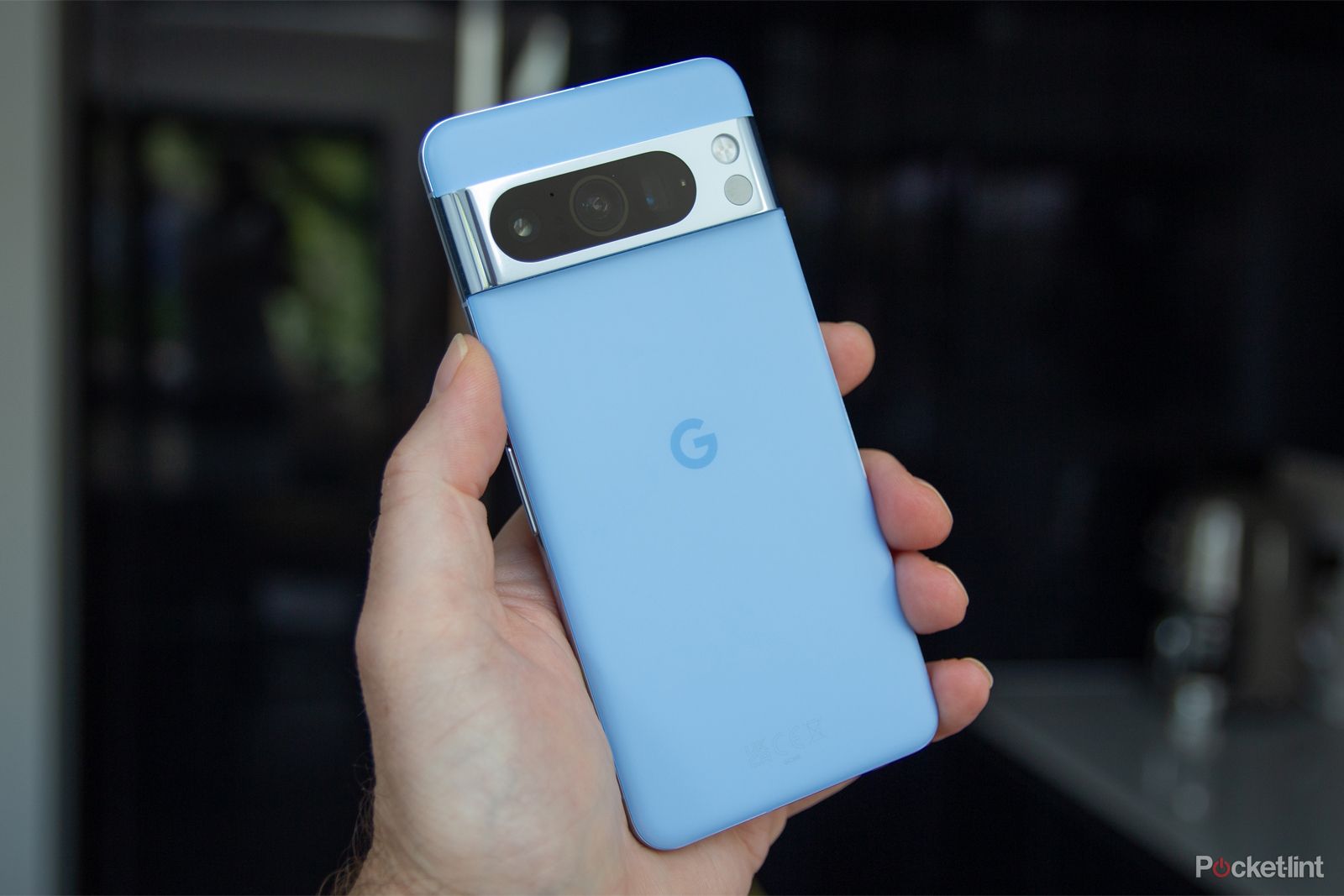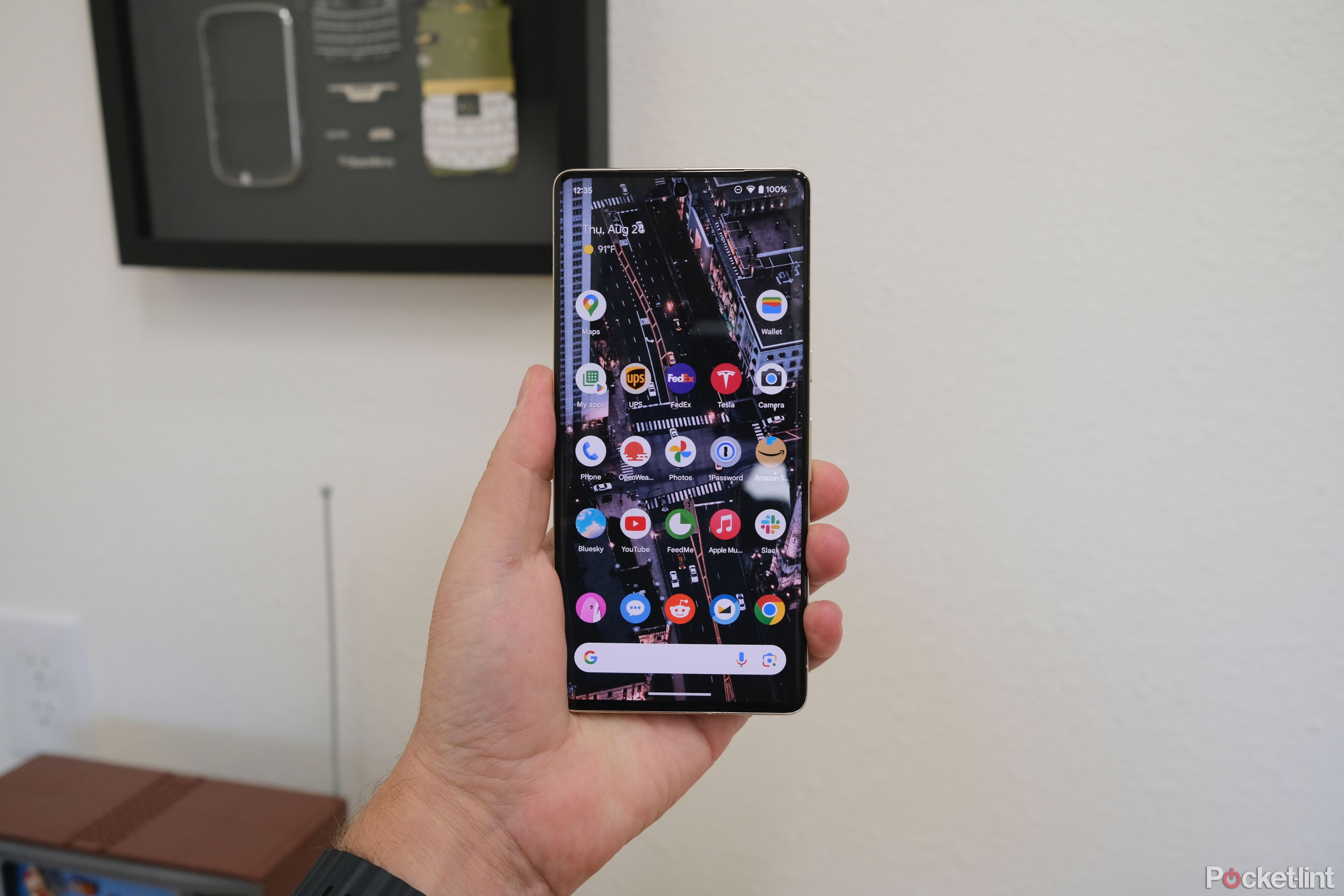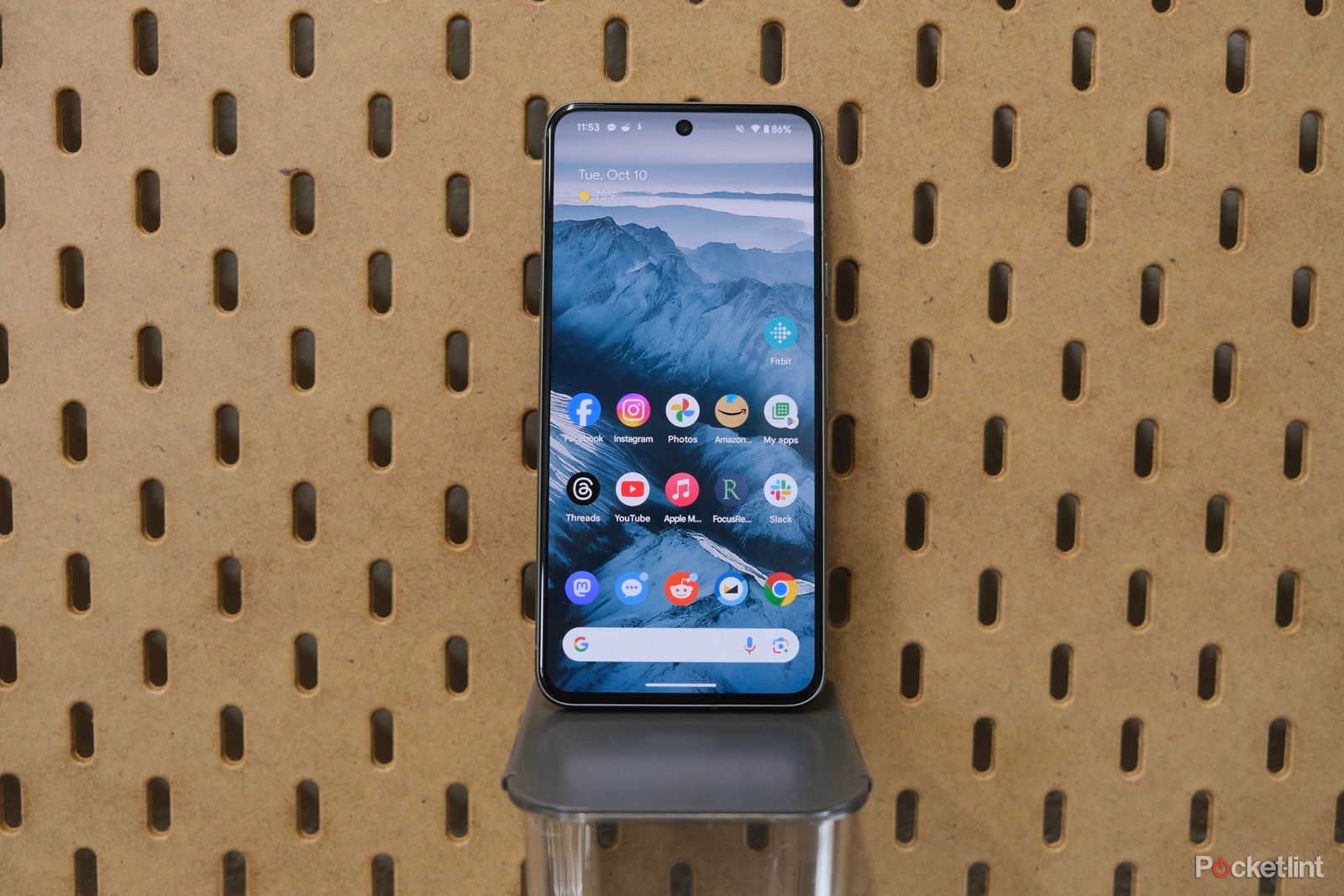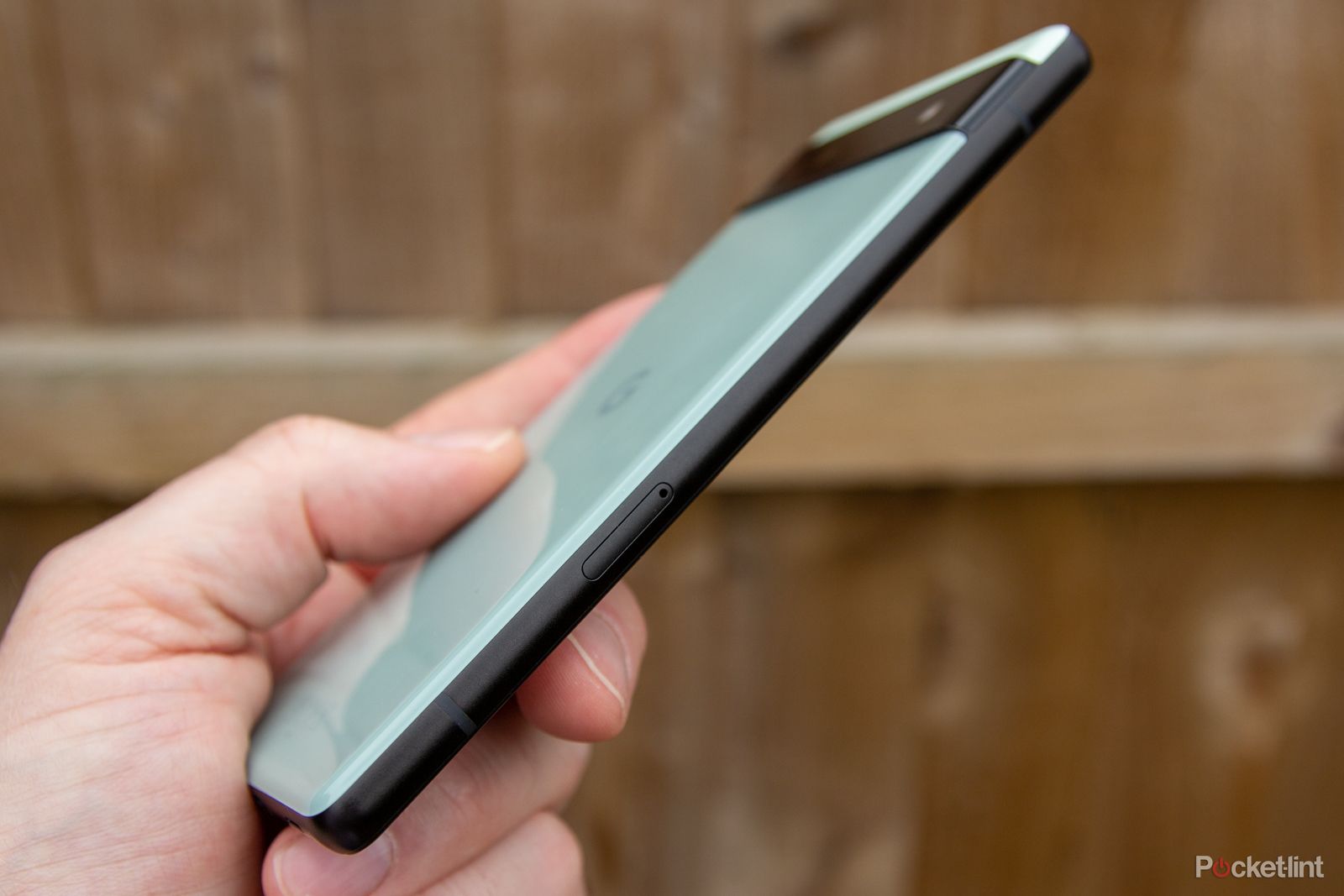Google's Pixel phones have slowly but surely been working their way into the consciousness of the phone-buying public. Although it felt like something of a hobby in the early days, the Pixel started to turn heads with its excellent camera performance on the Pixel 3. Now, these phones are growing in popularity, attracting the attention of both Android and iPhone users.
Google currently offers seven different Pixel models, which include the Pixel 6a, Pixel 7a, Pixel 7, Pixel 7 Pro, Pixel 8, Pixel 8 Pro and the Pixel Fold. The Pixel 8 and Pixel 8 Pro are the newest additions to the selection, announced in October 2023. I've extensively used all the currently available Pixel phones, and it's a rare thing for me to not have a Pixel in my pocket or bag. With the latest devices now available to buy, I'm going to compare the devices and help you choose the best Pixel phone for you.
The best Google Pixel phones: Our top picks
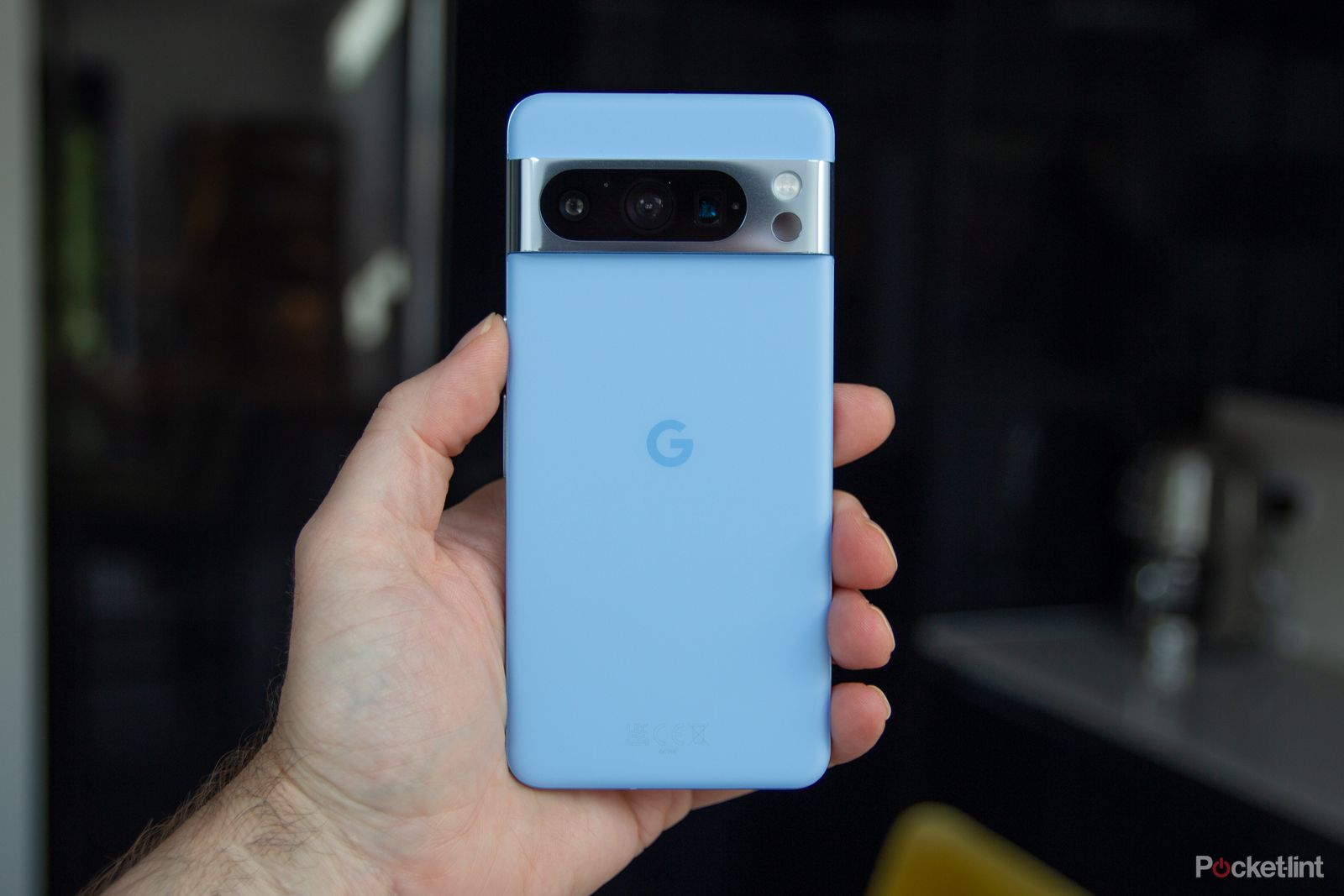
Google Pixel 8 Pro
A game-changing camera experience
- Outstanding imaging offering
- 7 years of software updates
- Wonderful display
- Battery life just about ok
- Some software features still to come
At a surface level, the Pixel 8 Pro is a tweak of the Pixel 7 Pro. Hanging on to that Pixel brand design with the camera bar across the back, it's clear that Google has increased the quality of the design, making this device a little more refined - and a world apart from the Pixel 6 Pro that first launched with these looks in terms of finish. So the 6.7-inch OLED display with an adaptive 1-120Hz refresh rate might not sound like much of a change, but when you hear it has a peak brightness of 2400 nits - one of the brightest on the market - you'll look again.
That peak brightness is partly to boost the Ultra HDR support this phone offers, which boosts the visuals from photos captured on the device, but it bolsters perhaps the most important part of the Pixel 8 Pro: the camera. While the camera system is refreshed over the Pixel 7 Pro rather than being entirely new, it's the AI powers that it packs that are noteworthy. Capture is superb, but the skills afforded by Magic Editor are unparalleled in smartphones at the time of writing - and only available on the Pixel 8 and Pixel 8 Pro, so it really is something special.
Performance is boosted by the Tensor G3 hardware, with a 5050mAh battery to see you through the day. There are storage options ranging from 128GB up to 512GB, and the Pixel 8 Pro comes in Obsidian, Porcelain and Bay colors. The package is protected by IP68 protection, making this a super-smart phone for everyone.
But beyond the hardware, it's the experience that sells this phone. There are 7-years of software updates, with the Pixel always being the first to get the latest version of Android, while the additional features offered by Google for its Pixel line make it a compelling choice of Android device. There's more to come too, with Video Boost and Video Night Sight features due to be added, again boosting its AI photography skills. The Pixel 8 Pro is the best Pixel phone and the natural choice if you want the best: this phone has become my daily driver.
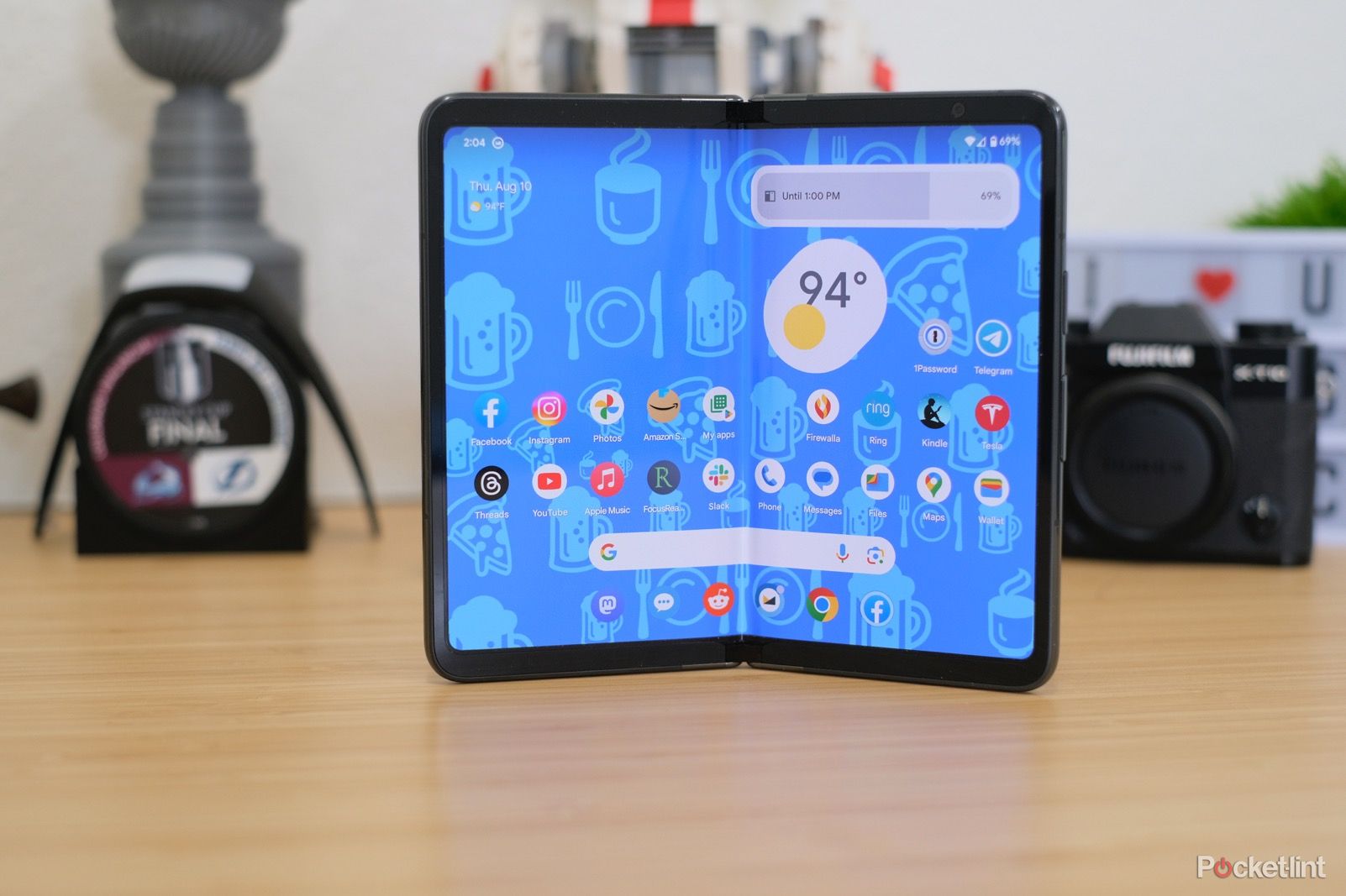
Google Pixel Fold
Folding phone done the Pixel way
Google's Pixel Fold is the company's first foldable smartphone and it sure is a looker. It takes a different approach than Samsung's Z Fold line, and you're either going to love or hate it.
- Great quality design
- External display is very usable
- Great camera results
- Some software optimisation still to happen
- Pricey
- Middling battery life
Google's Pixel Fold, is the company's first smartphone that veers from the traditional slab form factor and features a foldable display. At $1800 it's also the most expensive Pixel. The overall design is similar to Samsung's Z Fold 5 in that there's an outer display you can use for more routine and mundane tasks, but when you need a larger screen the Pixel Fold opens like a book to reveal a much larger, tablet-like inner display. Only instead of being tall and narrow like the Z Fold 5, Google took a shorter and wider approach to the overall design of the Pixel Fold. Personally, I like this foldable design because it makes the outer display much more usable in more scenarios, and the inner display isn't as tall when the Fold's open. The Fold is available in obsidian or porcelain color options.
The outer display of the Pixel Fold is a 5.8-inch OLED display with 1550 nits peak brightness. The internal display is a 7.6-inch OLED display with 1450 nits of peak brightness. Both screens have up at 120Hz refresh rate. The Fold's hinge closes completely shut, leaving no gap between the screen, preventing dust and debris from getting inside when it's closed and in your pocket. The list of components powering the Pixel Fold will look similar, as it uses Google's Tensor G2 processor, and has 12GB of memory and 256GB or 512GB of storage. The battery is 4,821mAh and has been more than enough to last a full day in my use over the last six weeks or so. That's with mixed inner and outer display usage, I'd say of 40 per cent to 60 per cent, respectively.
As for the camera setup of the Pixel Fold, you can expect a similar experience to Pixel 7 Pro. There are three rear-facing cameras on the Fold, with a 48-megapixel wide camera, a 10.8-megapixel ultrawide, and a 10.8-megapixel telephoto camera with 5x optical zoom and Super Res Zoom up to 20x. There are two front-facing cameras, a 9.5-megapixel camera above the front display and an 8-megapixel shooter above the inner display. You're not going to get the same overall quality from the Pixel Fold's camera setup as you would the Pixel 7 Pro, but I've captured some really impressive photos with it that have made me all but forget about the hardware differences between the two. Plus, you can use the rear cameras to take selfies on the Pixel Fold due to how the phone folds open, and you're able to use the front display to frame the shot.
Where the Pixel Fold will undoubtedly fall short for some users is with app compatibility. All Android apps open and run fine on the Pixel Fold, of course, but due to Google's choice to go with a widescreen design, not all apps are optimized to take up the entirety of the internal display. Instead, you see black letterboxes on either side of the app's window. It can be annoying, and it's surely not as polished as Samsung's Z Fold 5.
That said, if you're someone who is tired of Samsung's somewhat heavy-handed One UI Android tweaks and customizations or don't like the design of the Z Fold 5, the Pixel Fold is a fine choice for a foldable phone.
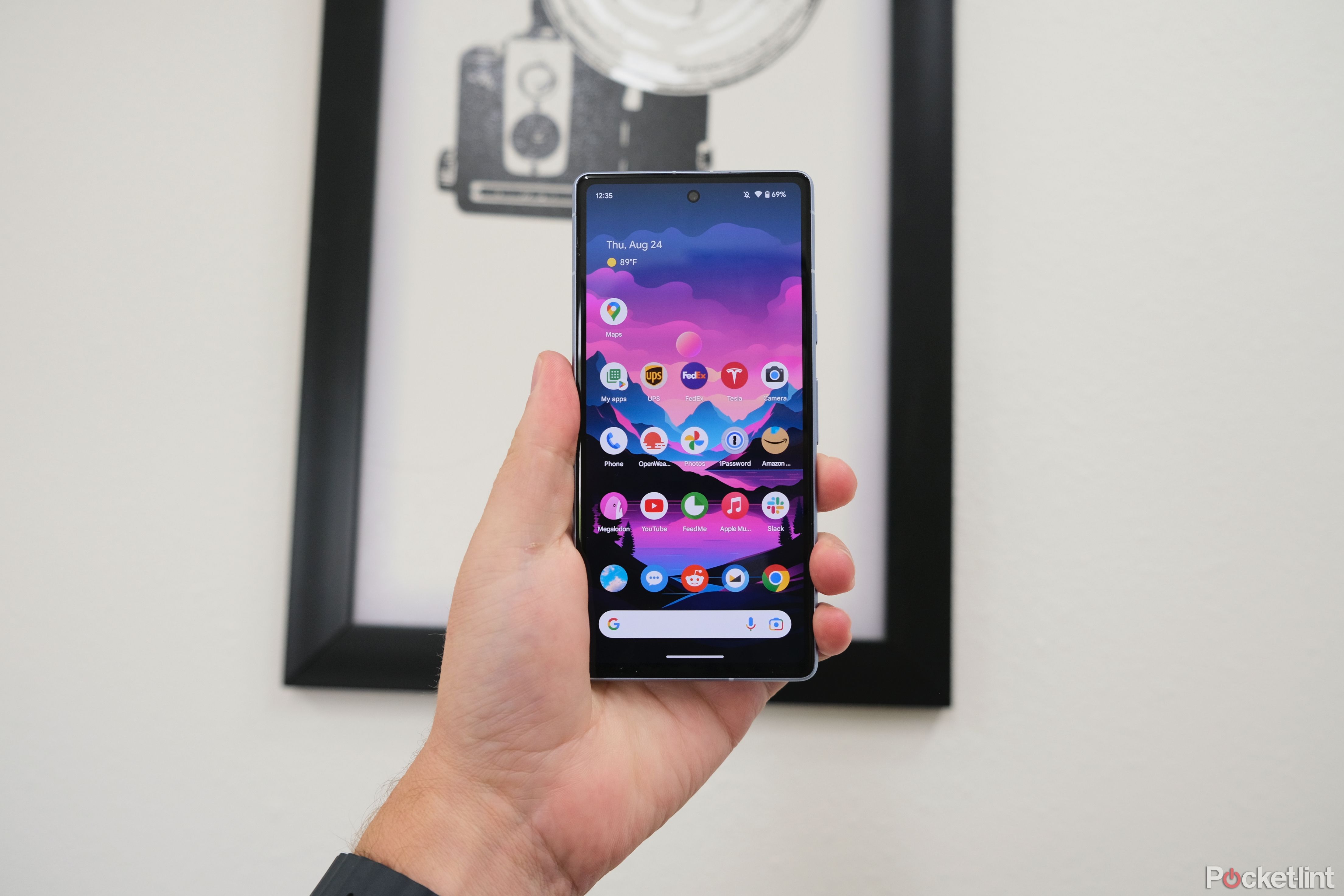
Google Pixel 7a
The obvious choice of affordable phone
The Pixel 7a is Google's latest mid-range phone. It succeeds the Pixel 6a, and sits alongside the Pixel 7 and Pixel 7 Pro, offering a number of great specs and features and bridging the gap even more between flagship and mid-range.
- Flagship power
- Quality Pixel camera (with a caveat)
- Solid build
- Good clean software and timely updates
- Ultrawide camera switching bug
- Display not the brightest
Shortly after Google updates its core Pixel phone line, the company has a habit of releasing an A-series model that uses some of the more attractive features of its latest smartphones but cuts corners to make the phone more affordable. This year, that's the Pixel 7a. The 7a comes with a 6.1-inch OLED display with the same resolution as the Pixel 7, but without any sort of listed peak brightness. You'll still get up to a 90Hz refresh rate for smooth scrolling, however. It's powered by Google's Tensor G2 processor, has a 4,385mAh battery, 8GB of memory and comes in one storage size of 128GB.
Instead of having a glass back and an aluminum frame, the 7a is made of plastic - so it lacks the same premium feel and polish as the rest of the Pixel 7 lineup. However, it's the first A-series Pixel phone to include wireless charging. The housing also has IP67 water and dust resistance. A fun aspect of the Pixel 7a is its various color options which set it apart from the rest of the line. The 7a comes in a very bright coral, sea, charcoal or snow.
The backside of the 7a has two cameras. There's a 64-megapixel wide shooter, and then a 13-megapixel ultrawide. The front-facing camera is 13 megapixels. In my experience, the photos you get from the 7a are clear and sharp but lack some of the overall quality you get from the rest of the Pixel 7 line or even the Pixel Fold. That's not to say you won't be happy with the images, I've been very pleased with the photos I've taken on the 7a overall.
At its $499 regular price, you're saving at least $100 compared to the Pixel 7, or $400 when compared to the Pixel 7 Pro - and it's a healthy drop from the newer Pixel 8 model too. The Pixel 7a is a fine mid-tier smartphone from Google that does a fantastic job of mixing affordability with performance.
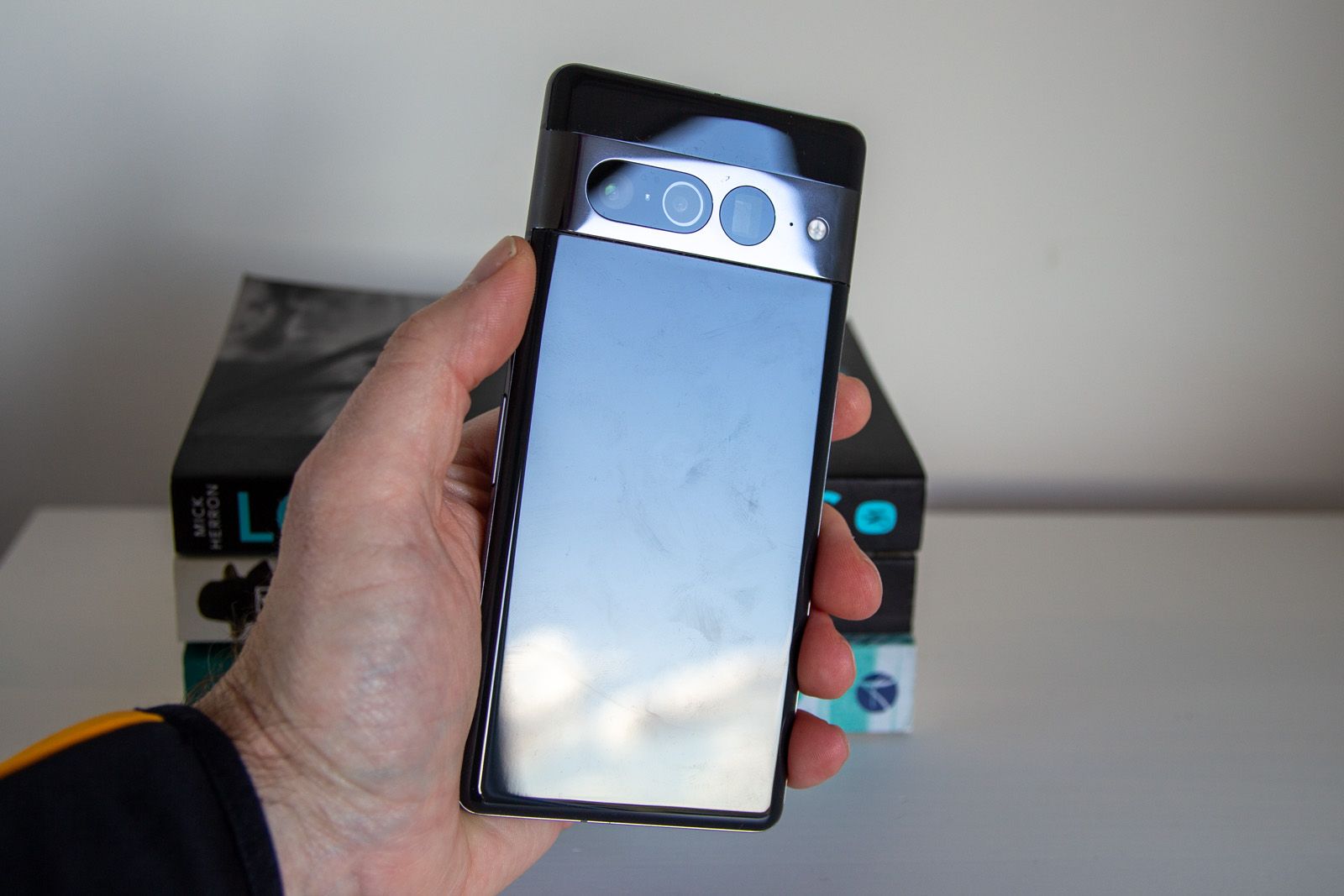
Google Pixel 7 Pro
It's not the latest, but the price could be great
Pixel 7 Pro builds on the foundation of the Pixel 6 Pro, offering a more refined design, stunning camera performance and clean software.
- Great camera performance
- Fantastic display
- Clean software experience
- Competitive price
- Not many changes from Pixel 6 Pro
- Limited HDR sharing
- Face unlock limited
Replaced by the Pixel 8 Pro - which is the best Pixel phone overall - the Pixel 7 Pro is still worthy of your attention for a number of reasons, especially if you can get it with a great discount. Google's Pixel 7 Pro features a 6.7-inch OLED display with up to 1500 nits of brightness, and up to a 120Hz refresh rate. All of that means you shouldn't have any issues looking at the screen in direct sunlight, and the high refresh rate of the display ensures smooth scrolling and high-action scenes in videos or moves are buttery smooth. The Pixel 7 Pro is available in some pretty unique color combinations thanks to the horizontal metal bar that runs across the back of the phone, as is the rest of the Pixel lineup. The 7 Pro comes in hazel, snow or obsidian.
The Pixel 7 Pro uses the Tensor G2 processor, a 5000mAh battery, IP68 dust and water resistance, comes with 12GB of memory, and ranges in storage from 128GB to 256GB to 512GB. The Pixel 7 Pro also has an advanced camera setup. Inside the Pixel 7 Pro's camera bar is a triple camera setup, featuring a 50-megapixel wide camera, a 12-megapixel ultrawide camera, and a 48-megapixel telephoto camera with 5x optical zoom and up to 30X Super Res Zoom. It's a great performer, only now outclassed by the Pixel 8 Pro.
There's still plenty going for the Pixel 7 Pro, but as an older flagship, the thing to really watch out for here is a reduced price. The Pixel 7 Pro is likely to be really attractive in Black Friday sales so if you can get a good price, it's definitely worthy of consideration.
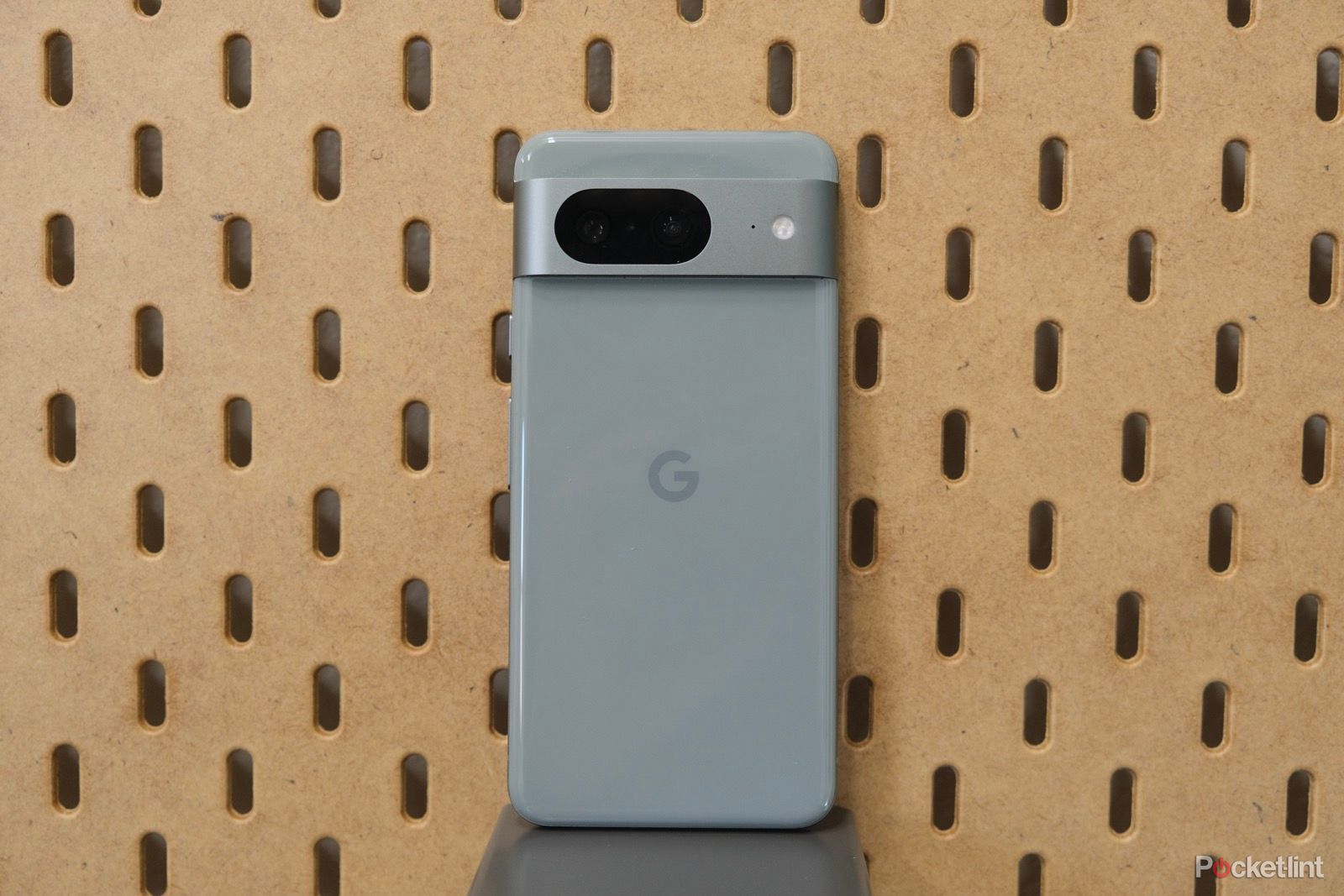
Google Pixel 8
Attractively affordable, but very capable
The Google Pixel 8 might get overlooked as it sits in the shadow of the Pixel 8 Pro, but this phone is more compact, more affordable, and still packs in many of the same skills.
- Excellent new design
- Brighter, faster display
- Face Unlock works everywhere now
- Great cameras
- Slow charging speed
- Face Unlock can struggle at night
- Is there such as thing as too much AI?
Sharing many features with the flagship Pixel 8 Pro, the Pixel 8 runs the risk of getting overlooked. This smaller, more compact version packs in much of the same experience, has the same power from the Tensor G3 hardware, but takes a few steps back in other areas. The 6.2-inch display isn't as advanced, with its 60-120Hz refresh rate, buand isn't as bright at 2000 nits, but it still looks great in daily use.
Then there's the camera, which misses out on the optical telephoto lens, and keeps an older 12-megapixel ultrawide, rather than the 48-megapixel ultrawide of the Pixel 8 Pro. It also misses out on the autofocus on the front camera. But behind it, there's still a great AI imaging system, as well as features like Magic Editor, although the Pixel 8 doesn't get the Pro Controls that the Pixel 8 Pro features. So it's a great camera, it's just not quite as great.
But you still get a great experience and can rest assured that you'll get 7-years of updates for this phone, as well as getting that uncluttered Android interface that Pixel owners relish. It's a great all-rounder performer while the slightly reduced spec positioning also makes this phone a little more affordable than the Pro model. For many, that will make it an attractive option of Pixel device.
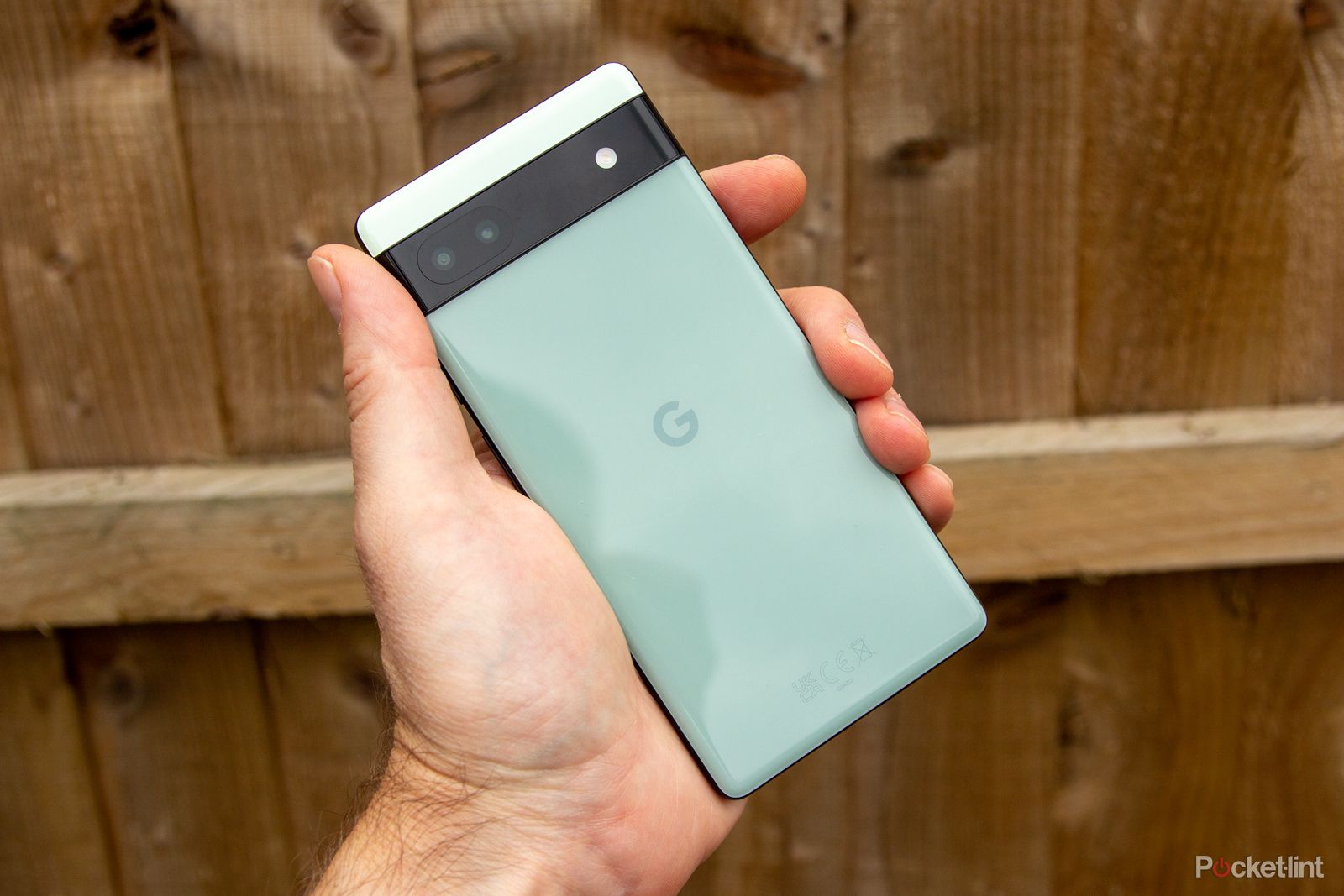
Google Pixel 6a
The cheapest route to Pixel phone ownership
The Pixel 6a is Google's budget smartphone that brings much of the same Pixel 6 experience, condensing it down to a more affordable package. Even though it's been replaced by the Pixel 7a, it's still a fantastic option.
- Beautiful form factor, even for a budget phone
- Flagship power
- Great updates policy
- Pixel camera magic
- Storage limited to 128GB
- Display only 60Hz
When Google announced the Pixel 7a, it kept last year's A-series phone in the lineup. Priced at $349, the Pixel 6a has a strong case to be considered the best budget smartphone available from anyone, let alone Google. The 6a matches a lot of what the 7a is equipped with in terms of specs, but keep in mind, that it is a year older than the 7a, so the internal hardware won't quite be at the same level of performance.
With the 6a, you can expect a 6.1-inch OLED display, up to 60Hz screen refresh rate, and a 4410mAh battery. It lacks wireless charging and is made with the same plastic material as the Pixel 7a. You can pick from three different color combinations with the 6a, which are sage, charcoal and chalk. Inside the phone is 6GB of memory, Google's first Tensor processor, and 128GB of storage.
The two rear-facing cameras are a definite weak spot of the overall Pixel 6a experience, with a 12.2-megapixel wide camera and a 12-megapixel ultrawide camera, whereas the front-facing camera comes in an 8-megapixel sensor.
Essentially, all of these specs mean that with the Pixel 6a you're getting a reliable phone that can run any of the current apps and services from Google and the Play Store, has plenty of battery life with a camera setup that's going to take good enough photos for everyday use.
The bottom line: What is the best Pixel phone?
In my opinion, the Pixel 8 Pro is the best Pixel phone overall. It's the newest, packing in the most recent technology from Google, including a camera system and photo experience that's like nothing else you'll find on other smartphones - including Google's older Pixel devices. This is a phone that's truly worthy of the flagship phone badge, with a stellar display, great frosted finish to the rear and plenty of power from the new Tensor G3 hardware. It's expensive, sure, but with 7-years of software support, it's going to last a long time. Keep an eye-on trade-in offers to bring the price down and get a perfect Pixel in your pocket.
How do the Pixel specs compare?
Google Pixel 8 Pro Google Pixel 8 Google Pixel 7 Pro Google Pixel 7a Google Pixel 7 Google Pixel Fold Google Pixel 6a SoC Google Tensor G3 Google Tensor G3 Google Tensor G2 Google Tensor G2 Google Tensor G2 Google Tensor G2 Tensor G1 Display 6.7-inch Super Actua OLED, 2992 x 1344, 489ppi, 1-120Hz, up to 2400nits 6.3-inch, Actua OLED, 2400 x 1080, 428ppi, 60-120Hz, up to 2000nits 6.7in, LTPO, 3120 x 1440 pixels, 120Hz, up to 1500nits 6.1-inch, FHD+, 90Hz, up to 1,000nits 6.3-inch, Full HD+, 90Hz, up to 1400nits 5.8-inch OLED, 2092 x 1080, 120Hz (cover) / 6.7-inch OLED, UTG, 2208 x 1840, 120Hz (main) 6.1-inch, OLED, Full HD+, 60Hz Battery 5050mAh, 30W fast charging, 12-18W wireless 4575mAh, 30W fast charging, 12-18W wireless 4500mAh, Fast charging, Wireless charging 4,385 mAh 4,355 mAh 4821mA / 30W fast charging, 7.5W wireless charging 4410mAh, Fast charging Operating System Android 14 Android 14 Android 13 Android 13 Android 13 Android Android Rear camera 50MP main, 48MP ultra wide, 48MP telephoto 50MP wide + 12MP ultrawide 50MP f/1.9 main, 12MP f/2.2 ultra-wide, 48MP f/3.5 telephoto 64 MP wide + 13 MP ultrawide 50MP f/1.9 main + 12MP f/2.2 ultra wide 48MP f/1.7 main, 10.8MP f/2.2 ultra-wide, 10.8MP f/3.05 telephoto 12.2MP f/1.7 main, 12MP f/2.2 ultra-wide Dimensions 162.6 x 76.5 x 8.8mm, 213g 150.5 x 70.8 x 8.9mm, 187g 162.9 x 76.6 x 8.9mm, 212g 152.4mm x 72.9mm x 9mm 155.6 x 73.2 x 8.7mm 139.7 x 79.5 x 12.1mm (folded), 139.7 x 158.7 x 5.8mm (unfolded), 283g 152.2 x 71.8. x 8.9mm, 178g Colors Obsidian, Porcelain, Bay Obsidian / Hazel / Rose Snow, Obsidian, Hazel Charcoal / Snow / Sea / Coral Snow / Obsidian / Lemongrass Obsidian, Porcelain Charcoal, Chalk and Sage IP Rating IP68 IP68 IP68 IP67 IP68 IPX8 IP67 RAM and Storage 8GB, 128/256GB 12GB / 128, 256, 512GB 8GB / 128GB 8GB, 128/256GB 12GB, 256/512GB 6GB / 128GB
How I chose the best Pixel phones
I have reviewed smartphones for the last 15 years, back when BlackBerry thumb was a hot topic. I've used hundreds of phones over those years, spanning both Android and iOS, including having used every Pixel phone Google currently sells and all of them that ultimately made this list. I drew on my personal experience not only with these particular models but also with smartphones as a whole over my career to help determine which Pixel phones are best suited for specific types of users.
At the end of the day, you can't really go wrong with any of the current Pixel phones. They each have something unique about them, be it a low price point or more advanced cameras. Finding the right one for you requires knowing all the finer details.
What makes Pixel phones different from Samsung?
Samsung is the leading Android smartphone maker, and so it's natural to compare Google's Pixel phones to Samsung's Galaxy lineup. The biggest difference between the two brands is going to come down to the software experience.
Samsung phones use Android, just as Pixel phones do, but Samsung's One UI heavily customizes the overall experience, adding Samsung's own apps and services alongside Google's. Some people really enjoy Samsung's approach, while others prefer the light-handed approach of Google's Pixel software that tightly integrates with Google's apps and services.
Furthermore, whenever there's a major software update, such as Android 14, Google's Pixel lineup is usually the first to receive any major updates along with quarterly Pixel Feature Drops where Google adds new features and capabilities to its Pixel line.
How often do Pixels get software updates?
When you have one of Google's Pixel phones, you can expect to receive monthly software updates that typically include security improvements and bug fixes. Once a quarter, Google releases a new Feature Drop that adds new features to its Pixel line. For the Pixel 8 models, Google has committed to 7-years of updates; for previous devices, Google committed to 5-years of updates.


